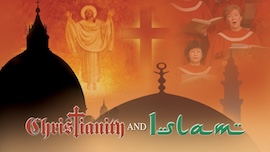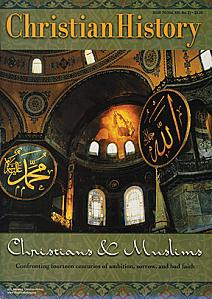Scholarios Strove to Keep Orthodoxy Alive Under Islam
WHEN Sultan Mehmet II took control of Byzantium from the Christians in the fifteenth century, there was no Orthodox patriarch in Constantinople (modern Istanbul). Mehmet wanted the position filled with someone who was opposed to reunion with the Western church; otherwise he feared that his Orthodox subjects might appeal to Rome for help, triggering another round of crusades. The man he tapped for the job was George Scholarios, better known by his monastic name, Gennadius.
At one time Scholarios had been in favor of union with Rome. Attending the Council of Florence,* he had stood with the imperial party which agreed to almost all the Roman Catholic demands. However, many subordinate priests and common people were so opposed to union that it never took place. Scholarios himself changed his opinion. The strongest opponent of union was Mark of Ephesus. In 1444, as Mark was dying, he passed this mantle on to Scholarios, saying:
“I have conceived a clear picture of his exceptional prudence and wisdom and power with words, and therefore I believe that he is the only one to be found at the present time who is able to extend a helping hand to the Orthodox Church….and likewise, with the help of God, to correct the Church and affirm Orthodoxy, if only he will not wish himself to retreat from the deed and hide his candlestick under a bushel.”
Scholarios had never been ordained, so a church synod hurried him through the appropriate steps. Mehmet II himself gave him his crosier (a bishop’s staff) and placed the mantle on him.
The tension of keeping relationships intact between the Christians and their Muslim overlords weighed on Scholarios. He tried several times to resign as Patriarch, and eventually succeeded in 1463 after nine years.
Scholarios was also active as an author, writing many books on Christian and philosophical themes, including defenses of Christianity against Judaism and Islam. One book was a confession of the faith drawn up to explain Christianity to Mehmet. Another was a lament over the fall of Constantinople. Other works examined Greek philosophy or attacked Western (Latin) Christianity.
Scholarios died around 1468. The Orthodox Church considers his contributions so valuable that it remembers him with a feast on this day, 31 August.
—Dan Graves
• The Council of Florence began as the Council of Basel in 1431, but moved twice.
----- ----- -----
Christianity and Islam compares and contrasts Christianity and Islam. Watch at RedeemTV.
(Christianity and Islam can be purchased at Vision Video)
For more on the interaction of the two faiths, read Christian History #74 Christians & Muslims








